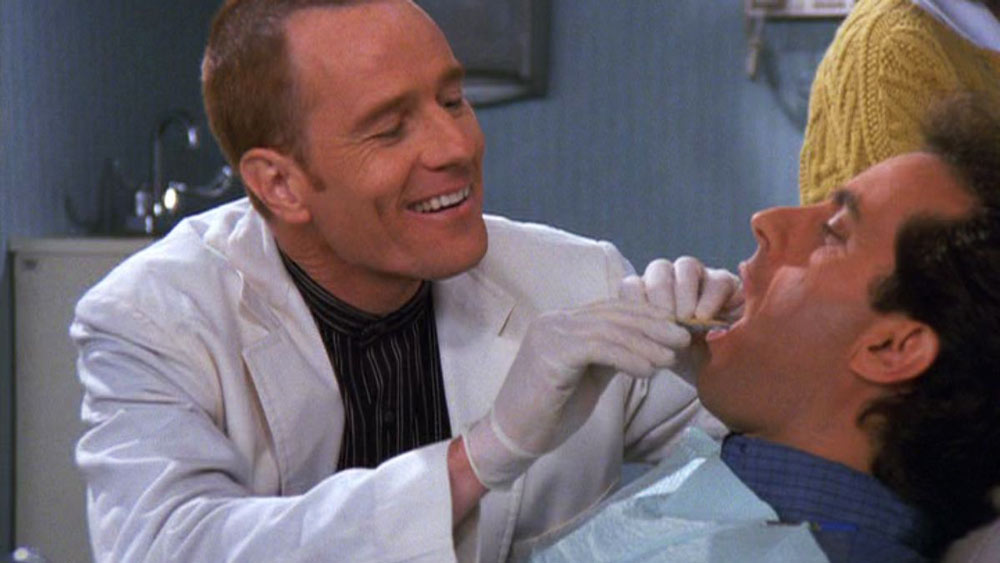SEO is an effective way for dentists to increase awareness, get more patients to their dental clinics, and improve their online reputation. While many dentists focus exclusively on on-page SEO, such as keyword optimization, this is a grave mistake. Off-site, or off-page, SEO is just as important — perhaps even more.
In this article, we will go over six off-site SEO tips for dentists. If you set up a website, but it isn’t attracting as much traffic as you were expecting, these six tips might help.
Let’s get into it!

1. Set Up Google My Business and Yelp

When building a local SEO presence, Google My Business and Yelp are perhaps the two most important directories for dentists. Let’s start with Google My Business — also abbreviated as GMB.
While anyone can set up a business profile for you, only you can manage your own profile. Registering yourself as the owner of your dental clinic allows you to:
- Update your hours
- Update your address
- Add pictures
- Describe your services
- Make a list of your services
- Add business updates
- Collect and respond to reviews
- And more!
Google My Business is important for two main reasons. First, it will help many people find out about your dental clinic. When people search for “dentist” on Google or Google Maps, a list of GMB profiles will pop up. Many people simply look at the top results and read the reviews to decide where to get dental care.
In addition, Google My Business signals help your regular website rank better. The more people who click on your GMB profile and the more reviews it has, the better your website will rank.
Yelp is also very important. While not as popular as Google, many people use it to find a list of the best dentists in their area. You can collect reviews on Yelp, describe your business, and a lot more.
2. Register in Local Business Listings

Once you’ve got the big two (Google My Business and Yelp) out of the way, move on to smaller, local business directories for linkbuilding efforts. Most people don’t use yellow papers in physical phone books these days — instead, many use online directories, including directories that are specific to your local area.
There are a few reasons to get listed in these directories, as well as directories that list dentists all across the country. Of course, they help drive traffic and get new patients. However, they are also critical for SEO.
One of the most important aspects of local SEO is building local citations, which are essentially listings in local, regional, national, and niche-specific directories and online yellow papers. They send signals to Google and help your website rank better. The more listings you have, the better.
Often, you will be able to register for free on directories and submit your listing at no cost to you. You can also use a specialized service to submit listings to such directories for you. That’s a great option if you don’t have a lot of time and don’t know which directories are best for you.
3. Ask Patients to Leave Reviews

As I mentioned before, GMB signals help boost your rankings. According to Google, you’re not supposed to give discounts or other incentives so patients leave reviews. However, that doesn’t mean you can’t politely suggest that they leave feedback.
The more positive reviews you get on GMB, the better both your GMB profile and your website will rank. Your Yelp profile will also rank higher if it has a lot of positive reviews.
However, you can also place reviews and testimonials on your own website! Since it’s your website, you make the rules — you can ask people to leave reviews or testimonials without worrying about violating any guidelines.
Reviews (that you let people submit by themselves) are a type of user-generated content (UGC). Google loves user-generated content because it shows that people are engaging with your site. People might also include natural keywords in their reviews that can help your website rank and drive traffic.
Testimonials and reviews are also great for building trust and social proof, and are part of a comprehensive UX strategy.
When you collect reviews on your site, make sure to use Schema.org markup to display the average star rating next to your website snippet in the Google search results. That helps drive click-throughs and conversions, and the more clicks you get on Google, the better your rankings will be.
When people click on your site more, Google takes that as a sign that your site is relevant to the search query, which is why they’ll start ranking you higher.
4. Build a Social Media Presence

Social media is another off-page SEO method that can work wonders. Social signals have a massive impact on website rankings. When Google sees that you have active social media profiles educating patients about dental health and personal care and that people are engaging with those profiles, they will be more likely to rank your website higher.
Here are some examples of social signals Google looks at:
- Profiles that post regularly
- Profiles with a lot of followers or likes
- Profiles that get a lot of comments
- Profiles that get a lot of shares and retweets
- Websites that have their blog posts and articles shared often on social media
The last one is important, and it is why you should post links to your blog posts on social media and encourage users to share your posts. You should also install social sharing buttons on your blog, so people can share your posts directly on their own profiles. If your content is helpful and informative, people will want to help their friends out by sharing the information you share.
So, how can you build up your social media presence? Start by creating profiles on these platforms:
- Facebook: Create a Facebook business page for your clinic.
- Twitter: Create a profile where you share helpful articles and clinic updates.
- Instagram: Share tips on Instagram, or post pictures of your clinic.
- LinkedIn: Create a professional personal profile.
Make sure to add a bio and link to your website from all of your profiles. Here are some next steps to take:
- Post content consistently.
- Mix up your content by posting your own links, links to other helpful articles, images, and videos.
- Use Facebook Live to increase engagement.
- Encourage users to post comments, and respond to them.
- Engage with others — like and comment on posts related to dentistry.
5. Participate in Guest Posting and Link Building

In addition to local citations, you should be getting links from other websites, especially other dentistry websites and blogs that focus on your local area.
The number of quality backlinks you have is one of the most important factors Google looks at when ranking your website. You don’t want to get low-quality links, but you do need backlinks, and a great way to get them is by writing guest posts for other websites.
Again, target either websites that discuss dental health or those that discuss your local area in general. For the former type of site, write informational blog posts, how-to guides, and listicle articles about dental health. For the latter type, make sure to include a local element as well.
Guest posting isn’t the only way to build backlinks, however. Another great way to get backlinks is by using the broken link building method. This method involves reaching out to sites that link to dental health articles — but only sites where those links are broken and lead to a dead website or a 404 page.
You can then suggest they link to your dental article instead (as long as you cover a similar topic or explain a similar subject).
They may not have noticed that the link was broken, so they’ll be grateful to you for reaching out and pointing that out, and many will be glad to link to you instead. After all, they won’t have to go searching the web now for a suitable replacement if your article is a good source.
6. Try Email Marketing

Email marketing is a great way to drive more traffic to your blog. Email marketing can also indirectly improve SEO by driving more traffic to SEO-optimized pages, generating awareness, driving more social shares, and getting natural, organic backlinks from other sites and blogs.
Email marketing is important for patient retention as well, and it gives you a way to communicate with patients directly and inform them of updates. You can also provide them with helpful dental health newsletters and get feedback about your clinic. For example, you can send out polls and feedback forms to see how you can improve your service or billing process,
Final Thoughts
You still need to focus on on-page SEO, including keyword optimization, metadata optimization, image optimization, etc. However, off-page SEO is just as vital for your SEO rankings, so don’t neglect it.
By following the six tips in this article, you can drastically improve your rankings, drive a lot more traffic to your site, and improve your online reputation. SEO success doesn’t happen overnight, so keep working on these tips until you see results.
When it comes to SEO in Minneapolis, turn to our team of experts
The team at Frahm Digital develops results-driven SEO marketing strategies that increase your reach online. Whether you need to target new audiences with keyword implementation, build local citations or develop a comprehensive content plan, we'll help you get it done.
If you're interested in learning what it's like to work with us, click the button below to receive a no-hassle, 100% free website audit. We'll give you actionable insights on ways to improve your communication, design and SEO.

